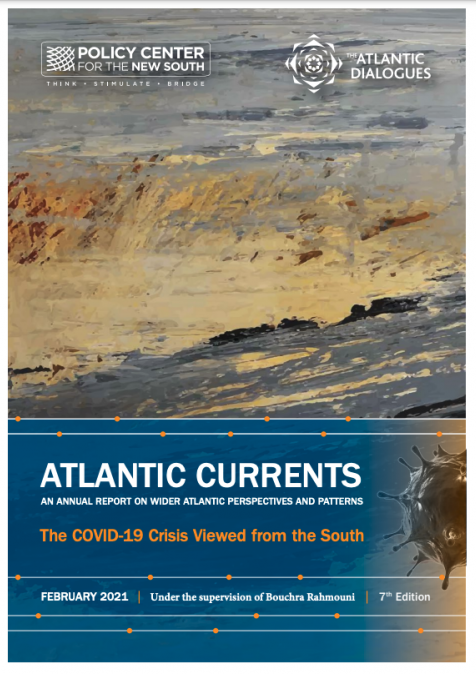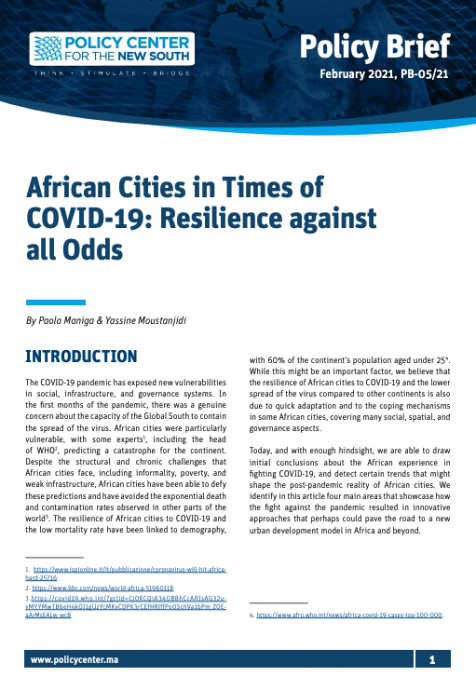Publications /
Opinion
COVID-19 is neither the end of civilization nor the beginning of enlightenment. The virus is revealing something though: the ignorance of some people, who are convinced by ideas of conspiracies and plots—for example that the virus emerged from secret laboratories in Wuhan, China, or Washington D.C. Or that Bill Gates, the billionaire Microsoft and internet pioneer, planted the coronavirus to earn money by selling vaccines. Or that 5G wireless networks are responsible for the deadly pandemic, transporting the virus throughout the world.
Social media has enabled those previously on the fringes of popular opinion to find and communicate with likeminded others. As people try to understand the pandemic, noted the online magazine theconversation.com, and make sense of their lives in lockdown, so called ‘truth seekers’ are receiving unprecedented levels of attention on YouTube, Facebook and Twitter. “Although Facebook newsfeeds are littered with state-sanctioned public health advice, private groups are awash with bogus claims and misinformation that contradicts the official knowledge and political process,” a theconversation.com article noted.
A Growing Coronavirus Conspiracy
Coronavirus conspiracies were pushed daily by the commander in chief of the greatest military and economic power in the world, U.S. President Donald Trump. He did not believe in the danger of the virus, ignoring the urgent messages from his intelligence services, which, observing the oppressive Chinese quarantine methods in December, predicted the deadly virus could strike the United States. The President relied on his instincts, calming his nation with accusations that his political opponents were inventing horror scenarios to damage his credibility and chances of reelection, and that it was all a hoax. Close advisors such as Peter Navarro warned White House colleagues in January about a virus that could kill a million or two million Americans if no action was taken, but, supposedly, no alarm reached the President.
Conspiracy Theories ‘As Dangerous as the Virus Itself’
Fake news, distortions, inventions, lies, and conspiracy theories are shadowing serious public debate about the source of the virus and the vaccines needed to control its spread. The coronavirus has “given rise to a flood of conspiracy theories, disinformation and propaganda”, reported the New York Times, “eroding public trust and undermining health officials in ways that could elongate and even outlast the pandemic.” Conspiracy claims, the New York Times said, seem “to give a senseless tragedy some degree of meaning, however dark.” Le Monde, a serious, reliable newspaper, informed its readers that shaving their beards off would not stop the virus. So-called experts suggested that if you hold your breath for ten seconds and you do not need to cough, you are free of the virus.
Daniel Jolley and Pia Lamberty, scholars of psychology, warned that the wave of coronavirus conspiracies “has the potential to be just as dangerous for societies as the outbreak itself.” They concluded: “Medical conspiracy theories have the power to increase distrust in medical authorities, which can impact people’s willingness to protect themselves.” One indication, visible among populist movements, is the reluctance to trust vaccines or antibiotics. The growing ecosystem of misinformation and public distrust has led the World Health Organization to warn of an “infodemic.”
The World’s Slide Into Fringe Populism
In Venezuela, dictator Nicolas Maduro suggested that the virus was an American bioweapon aimed at China. Brazil’s president, Jair Bolsonaro, insisted that the virus was less dangerous than experts claim and not worse than the ordinary flu. He went on Facebook to discredit scientific research. Facebook, Twitter, and Instagram removed Bolsonaro’s coronavirus-related posts because they spread disinformation and did “actual harm to people”. Italian populist Matteo Salvini, an opposition party leader, accused Beijing of developing a “lung supervirus” from rats and bats.
Medical conspiracies have been a growing problem for years, as has distrust of authority. Rumors and unbelievable claims are spread by everyday people whose critical faculties have been overwhelmed, psychologists say, by feelings of confusion and helplessness. The conspiracy theories, according to the New York Times all carry a common message: the only protection comes from possessing the secret truths that ‘they’—the establishment—don’t want you to hear. A searching for ‘coronavirus books’, reported Wired, can produce titles such as “Corona virus /COVID 19 controversy: conspiracy theories around the Demon virus from China”, the “Military Virus Apocalypse: Biological warfare, Bioweapons and China Coronavirus Pandemic”, implying that the virus is human made—the most captivating, popular conspiracy theory. Amazon has delisted some of the most dubious books, perhaps an indication that this is the end of the beginning and in a few months of continued lockdown we can return to whatever remains of normality.




